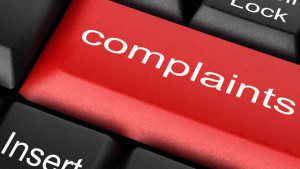The HR Files… My reflections on HR work.
I was recently involved in an investigation at work that turned out to be a sticky one. Let’s leave it that. A few times, holding it together was difficult. My patience and skill were tested and I was forced to really examine my procedures and protocol for leading workplace investigations. The difficulty of this particular investigation reminded me of the importance of conducting organized and thorough investigations.
Holding it together: My How-To’s for Conducting Difficult Workplace Investigations
By Niki Ramirez, MBA/PHR
Refresh yourself on workplace policies and applicable laws. Before you begin an investigation, ensure that you are an expert in all applicable workplace rules, policies and regulations. Read up. Study. Do your homework. Imagine you will have to explain these policies and teach someone else to apply them.
Review the complaint in detail. Make a list of the allegations and which workplace policies or laws/regulations they could violate if found to be valid.
Get organized and have a plan. There are a couple of solid approaches to conducting investigations, and I’ve been lucky enough to have participated in extensive training in this area. When you’re getting organized, make a few lists:
- a list of people that you with speak with (the complainant and the alleged harasser, any witnesses, etc.) and in what order;
- a list of questions that you will ask each one (try to work with open ended questions to allow people to expand and tell their own stories); a copy of all applicable workplace policies and rules;
- a schedule that you will follow in order to complete the investigation in a timely manner. Most investigations should really begin within days of a complaint being filed, and should conclude as quickly as feasible under the unique circumstances.
- Gather any physical evidence and review it before beginning the investigation if possible (such as emails, recorded calls, video surveillance recordings, etc.)
Practice your interview skills. If it is your job to interview employees, remember that interviewing during an investigation is a skill that we develop over time. Just like a baseball pitcher will improve every time he throws the ball, as we practice having difficult conversations and leading investigations, our skill level increases.
- Work with your manager, a mentor, coach or consultant that you trust to review your plan, including your approach to conducting the interviews. Review your questions and why you will ask each one. Practice saying your questions out loud before you sit down to begin your interviews.
- Topics involved in investigations can many times be uncomfortable, and practicing getting through an uncomfortable conversation is a great way to increase the likelihood that it will be successful.
- Many times during an investigation you may feel that someone is lying to you. With practice, you will be able to confront people effectively that you believe are lying. Additionally, you will build the skill needed to coax information out of employees who are reluctant to share what they know. Handling both of these difficult situations is critical to the success of your investigation.
Remain open-minded. As details emerge, avoid jumping to conclusions. Letting an investigation run its full course is critical to the integrity of the investigation. Make sure to speak with any and all witnesses named during interviews. Be open to speaking with additional people as needed.
A complete investigation includes a comprehensive written report. Although daunting, this part is absolutely necessary. If you do not have the time or the experience to create this type of document, consider working with a qualified third-party to assist in conducting the investigation and compiling the report, including conclusions and recommendations.
A thorough investigation includes follow up. Following the conclusion of your workplace investigation, depending on the circumstances, you will have follow up responsibilities:
- to your decision-makers to review your investigation report and recommendations.
- to managers to ensure that no-retaliation policies are enforced.
- with the complainant to let them know that the investigation is complete and provide them with details if they should need to speak with someone again. You may also want to schedule periodic check-in’s with the complainant to see that they are not experiencing any additional issues in the workplace.
- make any needed changes or updates to workplace policies and protocols to improve your work environment and prevent the same situation from occurring in the future.
Keep in mind that during the course of any investigation you may discover that things at your organization are not as they seem; and not as you thought they were. Go with the flow. Be open to learning what you can do to improve your organization using the knowledge gained during an investigation.
And… as a closing thought… Just hold it together and don’t let the drama of the situation affect you. You have a choice as to how you react. Just imagine, a year from now, it’ll be a lesson-learned story and something you can look back on as an opportunity to advance your skills!
Would you like assistance with a workplace investigation? Contact us and we’ll determine the best partnership / approach in your unique situation.
About the author: Niki Ramirez is a seasoned professional consultant and coach with a knack for engaging business leaders. She has a successful track record partnering with a wide variety of organizations to analyze current human resources and business operations with an objective of collaborating to design cost-effective HR, training, employee relations programs, develop employment policies and procedures, and help organization exceed their goals. Niki is a proud momma to her three kiddos and loves to be outside with them hiking and riding horses, tending to their chickens and playing with their dogs every chance she gets!




